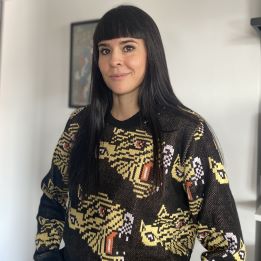

Legal director Colombia Ecuador and Venezuela | Abbott



Natalia Encinales Ariza
Legal director Colombia Ecuador and Venezuela | Abbott
How do you approach managing legal aspects during periods of instability or crises, and how does your legal strategy align with the broader business strategy to ensure the organisation’s resilience?
As Legal Director during periods of instability or crisis, I prioritise several key areas to ensure effective crisis management and organisational resilience.
As a leader, I maintain open and honest communication with my team and colleagues. Transparent dialogue ensures that employees are informed about the facts and available support, while also fostering a culture of trust where they feel empowered to contribute innovative solutions. Balancing transparency with confidentiality is essential. I also collaborate on managing external communications, ensuring that media messaging protects the organisation’s reputation and legal standing. I proactively assess legal and regulatory implications specific to each crisis, identifying potential legal challenges early and escalating them along with mitigation strategies. My role extends beyond legal risk assessment—I actively contribute to strategic decision-making, offering insights as a seasoned professional. I also ensure that legal support is timely, accurate, and responsive to the needs of patients, consumers, clients, employees, and their families. My legal strategies remain flexible and responsive to the evolving nature of crises. I consider the impact of external factors on legal matters and strive to anticipate developments while maintaining composure amid uncertainty. Adaptability is key to navigating complex and shifting environments. Finally, I ensure that all crisis management efforts align with legal and regulatory requirements. Compliance is fundamental to maintaining organisational stability.
What are the major cases or transactions you have been involved in recently?
Given the economic crisis affecting several Latin American countries—particularly Colombia and Ecuador in the public healthcare sector—I have recently been involved in exploring new business models and projects that present significant complexities. These include implementing mechanisms to safeguard the company in cases involving client accounts receivable, and proactively working to prevent an increase in the company’s liability, both from a regulatory perspective and in terms of oversight by authorities. Additionally, I have been engaged in the development of new product types, distinct from those traditionally commercialised by the company. This has deepened my understanding of the challenges associated with product launches and commercialisation, while also enabling me to upskill my team to deliver strategic legal support. Staying informed and participating in cross-country legal team sessions within the organisation has been instrumental in identifying emerging trends and anticipating actions to mitigate future risks. Furthermore, the healthcare system changes introduced by the Colombian Government, along with the ongoing public debate, have required continuous monitoring by myself and other stakeholders in the sector. This vigilance helps us better understand the evolving system and anticipate its impact on patients, clients, and stakeholders at large.
What emerging technologies do you see as having the most significant impact on the legal profession in the near future, and how do you stay updated on these developments?
Artificial intelligence is undoubtedly one of the most transformative emerging technologies, impacting not only the legal profession but virtually every sector. Its potential to help us work smarter and faster—unlocking capacity for high-value tasks—is immense. From basic functions like translating messages or summarising email threads and documents, to more complex applications, AI is reshaping how we operate. However, this transformation comes with significant challenges. In the legal field, caution is essential when using AI to research legal sources, as these tools can sometimes generate inaccurate or fabricated information. There are also concerns around privacy and confidentiality, particularly when handling sensitive data. On a broader scale, AI systems can inherit biases from their training data, leading to discriminatory outcomes. Ethical questions also arise, such as the extent to which we delegate decision-making power to machines. These issues require thoughtful consideration and responsible governance. To stay ahead, I not only participate in the public debate around new laws and regulations about AI, but also formal training, and also engage daily with available tools, contribute to IT-led initiatives and pilots exploring new AI applications, and provide feedback on any issues I encounter.
How do you prioritise diversity and inclusion within your legal department, and what initiatives have you implemented to foster a more inclusive and equitable work environment?
I prioritise diversity and inclusion (D&I) by making it a visible and ongoing conversation—fostering knowledge, raising awareness, and building a shared understanding and language around it.
I have led numerous D&I initiatives, including: Establishing inclusive communication guidelines for our department meetings to ensure respectful and equitable participation; conducting surveys with our key external law firms to assess how they prioritise and implement D&I practices; delivering training sessions to the regional legal team on unconscious bias and inclusive language, helping to embed inclusive thinking into our daily work; supporting hiring and retention strategies that promote diverse talent, including reviewing job descriptions to ensure inclusive language and accessibility; and I’ve presented the evolution of laws and regulations across Latin America on topics such as same-sex marriage and adoption rights.